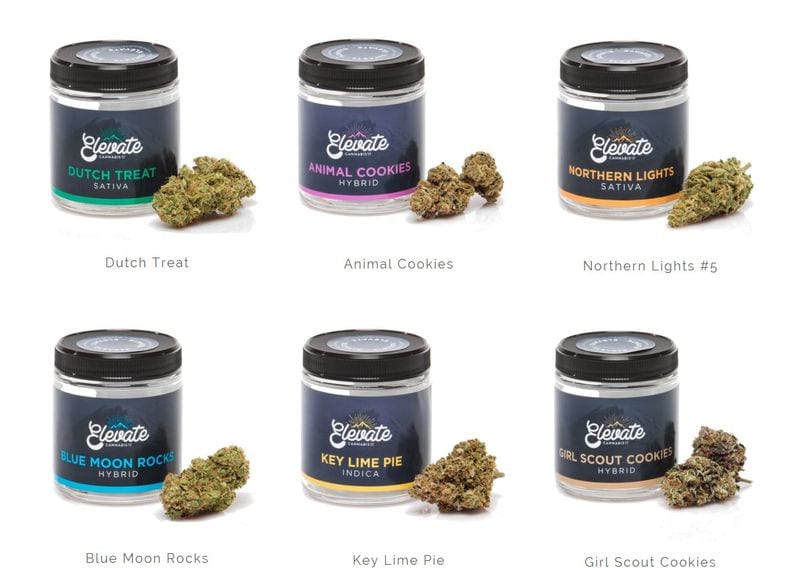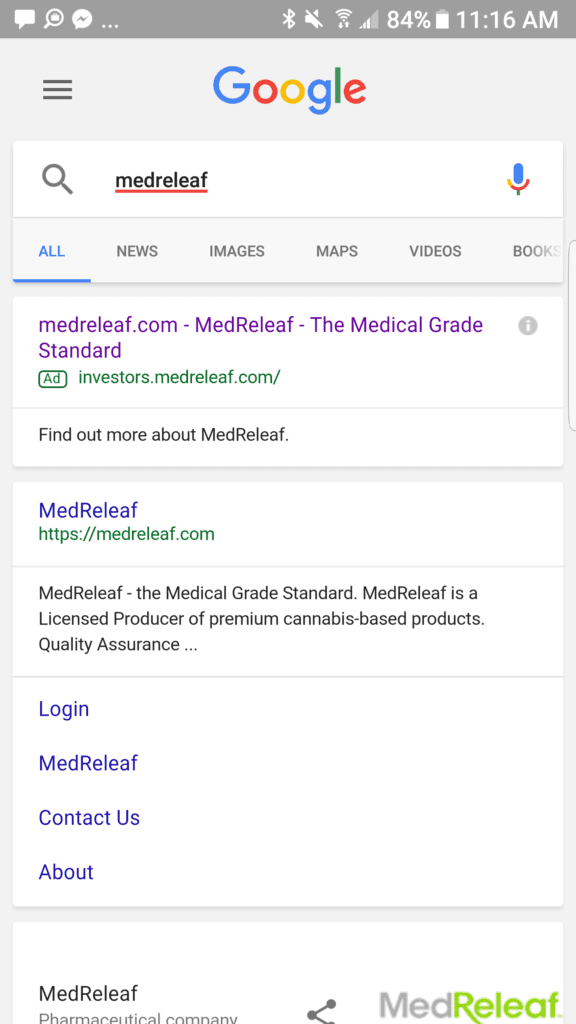Please note: Due to the ever changing landscape on this discussion, this post is now out-of-date with proposed regulations. We have written a new article here – The On-Going Marijuana Marketing Tug-of-War – that takes into account more recent developments.
With marijuana legalization looming in Canada and currently set for July 2018, there’s lots of federal discussion on the rights of marijuana companies to advertise and market their products. Should they be treated similar to tobacco companies? Should they be allowed to advertise at all? What about product branding? Over the past decade there’s been a ton of regulations around the advertising and promotion of products that can potentially cause harm, such as alcohol, tobacco and pharmaceuticals. Understanding and abiding by these regulations including the restrictions some online advertising platforms impose will be a challenge for many companies as the laws evolve around marijuana. Here’s what we currently know:
Direct Advertising
The promotion and sale of recreational marijuana remains illegal in Canada until July 2018, where only licensed producers with permits to sell will be allowed to sell the products. How and where is still being determined at federal and provincial levels. Marijuana usage for medical purposes is currently legal in Canada, and licensed producers are branding themselves and their products accordingly. With that said, advertising is a completely different story. Using digital marketing platforms as an example, all Google, Bing and Facebook have strict policies against the promotion of marijuana and any related paraphernalia (such as pipes and vapes). There is also no word on expected changes to their policies as legalization looms.
Even in countries where marijuana is legal (Netherlands) or even states (Alaska, California etc.), these platforms still will not allow for promotion of any kind. This poses some significant issues for producers. But that doesn’t mean they have no options. We dig into workaround for this a little later on in this post.
E-Newsletters
With all the restrictions in place, it’s nice to know that companies can produce and share whatever information they want to individuals who have signed-up to their e-newsletter. Most producers have two different versions, one currently for their medical users, and another for investors (assuming the company is publicly traded). As recreational marijuana usage looms, it’s likely these companies will develop a third list for that audience as well (if they haven’t already). This is where many of the producers currently do most of their advertising. The challenge here is that in order to build your lists, people need to find out about your products – and aside from seeing your company via other sources, building lists can be a struggle. That said, this platform offers marijuana companies with the most freedom to promote and advertise as they see fit.
Branding
Luckily, there are no current regulations on a marijuana company’s ability to brand themselves. We’re talking more than a logo and color palette here. Nearly every major player in the marijuana investment space has a strong brand (and so do many private companies). Canopy Growth Corporation, Aurora Cannabis, Aphria, Emblem Corp, Organigram all have strong brand presences in everything they do. From their basic press releases, to their product shots, product branding and ‘performance’ to all their digital assets. Having a strong, unified brand is essential to any business, and is currently one of the major focuses for successful all companies in this space. There has been a strong move away for most companies from the “Bob Marley” type of brand that is usually associated with marijuana, to much stronger, more professional brands. See some product brands below.


Social Platforms
While Facebook will not let them advertise, there’s no stopping them building a Facebook page and pushing content related to their specific products. The caveat is simply that they cannot advertise this content (which on Facebook can severely reduce reach). With that said however, tons of companies have created quite the following – Aurora Cannabis for example has over 11,500 fans. Instagram and Twitter are also fantastic platforms to gain followers and fans. Some companies are rock stars in this space, and producing great shareable content.
Investment Boards
Many investment boards and communities have their own advertising platforms built in, many of which allow for advertising in relation to investments in marijuana companies. These platforms include Reddit, Stockhouse, Stocktwits, and others. In addition, social platforms such as these (and Facebook groups) often allow for AMA’s or “Ask Me Anything”’s where users can ask company owners any questions they wish at a planned online event. This is a great way to project your company and brand, dispel any rumours or false facts, gain fans and followers and more.
Digital Advertising


Third-Party Advertisers
Outside of the digital platforms with the most reach like Google & Facebook, there are third-party advertising platforms that do allow for marijuana related advertising. Outbrain for example will also allow for advertising of investment opportunities related to MJ companies. Currently however they also have policies against the advertising or sale of illegal drugs, alcohol and cigarettes.
Traditional Advertising
Traditional print advertising isn’t out of the question either. There’s plenty of relevant magazines that are willing to promote marijuana companies for marketing purposes. Direct mail campaign are also allowed with no restrictions. Obviously there’s still some stigma to marijuana nationwide and worldwide, and marijuana advertisers need to be cognizant of who they are sending advertisements to, but that is something that’s true for any and all marketing campaigns.
Press Releases
For most companies, issuing press releases is a great way to disseminate new information about their company to the masses. For publicly traded companies, this is a necessity, and is a great way to inform current and potential investors of any comings and goings at your company.
Events/Sponsorships
Being visible in the community is another great way for these companies to get more exposure. Joining local parades, farmers markets, and sponsoring events is a fantastic way to connect locally, and generate good will press on TV, newspaper, magazine and more, not to mention the opportunity to speak directly with the community of people you serve.
Search Engine Optimization (SEO)
It’s quite rare that an industry is borne in a matter of a couple of years. The last time an industry like this was created was post-prohibition. This is of great benefit for search engine optimization opportunities. Rather than trying to compete with companies that have had a stranglehold on the top organic spot for decades, the SEO playground is brand new. As the industry evolves, so does terminology and word usage. These new keyword phrases and acronyms will be great opportunities for companies to grab up some of the SEO pie while its still blossoming. Content will be kind in this sector for years to come, so having a blog and a place for great content will also be a must-have.
There you have it. As the legal marijuana landscape evolves, its guaranteed advertising and marketing opportunities will also change. We’re excited to be apart of this movement and look forward to any opportunities to work with some of these incredible trendsetting businesses.




